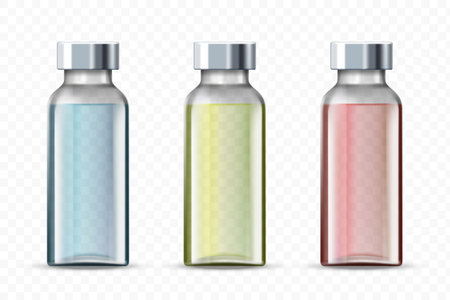Introduction: Understanding Anti-Aging Nutrition
When it comes to health trends in America, anti-aging nutrition has evolved from being just another buzzword to a real lifestyle priority. Today’s consumers are more educated and proactive than ever before, looking for ways to stay energetic, maintain their appearance, and support longevity well into their golden years. But what does anti-aging nutrition actually mean? It’s not about miracle pills or quick fixes—it’s about making informed dietary choices that help the body function at its best as we age. The focus is shifting toward evidence-based strategies, emphasizing nutrients like collagen and protein that play key roles in supporting skin elasticity, muscle strength, joint health, and overall vitality. For Americans who value feeling good and looking their best for as long as possible, understanding the science behind these nutrients is more than just a passing trend; it’s a smart investment in long-term wellness.
Collagen Basics: Myths and Facts
Let’s be real—collagen is everywhere right now, from fancy beauty drinks to protein bars at your local grocery store. But what exactly is collagen, and how does our body really use it? Collagen is a protein that acts like the “glue” holding our skin, joints, and connective tissues together. As we age, our natural collagen production starts to slow down, which can lead to wrinkles, joint discomfort, and less skin elasticity. That’s why so many Americans are reaching for collagen supplements hoping to turn back the clock. But before you load up your shopping cart, let’s separate the hype from the facts.
| Myth | Fact |
|---|---|
| Eating collagen directly rebuilds your skin and joints. | Your body breaks collagen down into amino acids first; it doesn’t send whole collagen straight to your skin or knees. |
| All collagen supplements are created equal. | Quality varies a lot. Some powders might not even have enough active peptides to make a difference. |
| Plant-based sources can provide “real” collagen. | Only animal products contain true collagen. Plants may help boost your own production but don’t supply actual collagen molecules. |
A lot of wellness culture in America pushes the idea that popping a scoop of collagen powder will magically erase years from your face. The truth? While supplementing can support your body’s ability to rebuild lost collagen, results depend on diet, lifestyle, and individual biology. Plus, without enough vitamin C or protein in your overall diet, even the best supplement won’t do much. So if you’re considering adding collagen for anti-aging benefits, think of it as just one piece of the bigger nutrition puzzle—not a miracle fix.
![]()
3. Proteins Role in Youthful Living
When we talk about anti-aging nutrition, protein is more than just a buzzword—its an essential building block for maintaining that youthful glow and keeping our bodies strong as the years go by. Both animal-based proteins (like chicken, fish, eggs, and dairy) and plant-based sources (think beans, lentils, tofu, and quinoa) play a significant role in supporting our skin health, muscle integrity, and overall vitality.
How Protein Fuels Skin Health
Your skin isn’t just your body’s largest organ—it’s also one of the first places to show signs of aging. Protein provides the amino acids your body needs to produce collagen and elastin, which keep skin firm and elastic. Without enough protein in your diet, you might notice sagging, dullness, or slower healing from those everyday scrapes and cuts. Whether you’re reaching for grilled salmon or a chickpea salad, getting enough high-quality protein can help your skin look fresher and feel firmer.
Muscle Integrity: Staying Strong with Age
We all want to stay active as we age, but here’s the real talk: starting in our 30s and 40s, we naturally begin to lose muscle mass—a process called sarcopenia. Consuming adequate protein helps slow down this muscle loss. Animal proteins offer complete amino acid profiles that are especially effective for muscle repair, while plant proteins can also do the trick if you mix up your sources. If you want to keep up with your grandkids or just crush it at yoga class well into your golden years, prioritizing protein is key.
Overall Vitality: More Than Just Muscles
It’s not only about looking toned or having fewer wrinkles—protein affects how energetic you feel every day. A balanced intake supports metabolism, stabilizes blood sugar levels, and even helps you recover faster from illnesses or injuries. For those navigating hectic schedules or family responsibilities, choosing nutrient-dense protein options can make all the difference in maintaining energy and resilience against daily stressors.
Consumer Perspective: Real-World Choices Matter
If youre shopping for groceries in the U.S., there are endless protein options—from grass-fed beef to organic tofu. The best choice? It’s the one that fits both your lifestyle and values. Mixing both animal and plant proteins gives you a wider range of nutrients and keeps mealtime interesting. Ultimately, making mindful protein choices is an investment in how you feel—and look—as you age.
4. Collagen Supplements: Are They Worth the Hype?
Walk into any U.S. supermarket, pharmacy, or scroll through your Instagram feed, and youll see collagen everywhere—powders, gummies, ready-to-drink bottles, and even protein bars promising firmer skin, fewer wrinkles, and joint support. But as American consumers, are we really getting what we pay for? Let’s break down what these products offer, what research says about their effectiveness in anti-aging nutrition, and whether they truly deliver on their promises.
The Collagen Craze: What’s on the Market?
Collagen supplements come in various forms—each with its own marketing claims. Here’s a quick snapshot:
| Product Type | Common Claims | Typical Price Range | Convenience Factor |
|---|---|---|---|
| Powders | Support skin elasticity, boost joints | $20–$50/month | Mixes in drinks/food |
| Gummies | Younger-looking skin, easy to consume | $15–$30/month | On-the-go snack-like |
| Drinks/Bottled Shots | Quick absorption, beauty-from-within | $30–$80/month | No prep needed |
What Does Science Actually Say?
If you’re wondering whether collagen supplements are a miracle fix or just another wellness trend, science offers a mixed bag. Some clinical studies suggest that taking hydrolyzed collagen can modestly improve skin hydration and elasticity over several weeks. There’s also emerging evidence for joint health benefits—especially among older adults or those with osteoarthritis. But here’s the catch: effects are generally mild and not everyone will notice a dramatic change.
A Closer Look at Value for Money
The U.S. supplement market isn’t heavily regulated by the FDA when it comes to efficacy claims, so not all brands deliver the same quality. Many products contain added sugars (especially gummies), artificial flavors, or low actual collagen content. If you’re spending upwards of $40 a month, you deserve results—but don’t expect instant youthfulness from a single scoop or chew.
Consumer Takeaway: Read Before You Buy
If you’re considering collagen for anti-aging nutrition, look for third-party tested brands and check ingredient lists for unnecessary fillers. Remember: real results often come from a balanced diet rich in protein (including plant-based sources), good hydration, and consistent skincare—not just supplements. Ultimately, while some people see benefits from collagen products, they’re best viewed as one piece of the bigger healthy aging puzzle—not a magic bullet.
5. Real Food First: Eating for Ageless Skin and Strength
When it comes to anti-aging nutrition, nothing beats the power of real, whole foods—especially those rich in protein and collagen-supporting nutrients. In the American diet, there are plenty of delicious and convenient options that fit busy lifestyles while giving your skin and muscles what they need to stay youthful and strong.
Protein-Packed American Staples
Start with classic sources like grilled chicken breast, wild-caught salmon, lean beef, turkey, and eggs. These are not only easy to find at any grocery store across the U.S., but they also pack a powerful protein punch for muscle maintenance and recovery. Don’t overlook plant-based options either: black beans, lentils, quinoa, and tofu are fantastic choices for vegetarians or anyone wanting to mix things up.
Collagen-Boosting Foods
If you want to boost your body’s own collagen production—key for firm skin and healthy joints—look for foods high in vitamin C (like oranges, strawberries, and bell peppers), zinc (beef, pumpkin seeds), and copper (cashews, dark chocolate). Bone broth is another American favorite that’s naturally rich in collagen; just sip it as a warming snack or use it as a base for soups.
Simple Meal Ideas for Busy Days
For those on-the-go mornings, Greek yogurt with berries and a sprinkle of chia seeds provides protein plus antioxidants for skin health. At lunch, toss together a spinach salad with grilled chicken, cherry tomatoes, avocado (for healthy fats), and a squeeze of lemon juice for extra vitamin C. Dinner can be as simple as baked salmon with roasted sweet potatoes and steamed broccoli. And if you’re really short on time? A quick smoothie with protein powder, spinach, frozen fruit, and almond milk covers all the bases.
The bottom line: Prioritizing whole food choices doesn’t have to be complicated or time-consuming. By making smart swaps and focusing on quality American ingredients packed with protein and collagen-boosters, you can support your body’s natural anti-aging processes—even when life gets hectic.
6. The Bottom Line: Making Anti-Aging Nutrition Work for You
Let’s cut through the noise: When it comes to anti-aging nutrition, there’s no magic pill or trendy supplement that can replace the basics. Collagen and protein both play meaningful roles in keeping your skin, muscles, and joints healthy as you age, but you don’t need to empty your wallet or fall for every new product on the shelf. Here’s what actually works for everyday Americans:
Focus on Whole Foods First
Before reaching for expensive powders or capsules, prioritize real foods. Lean meats, fish, eggs, dairy, beans, and nuts deliver high-quality protein your body knows how to use. Bone broth and slow-cooked meats are natural sources of collagen and amino acids—no fancy marketing required.
Don’t Overcomplicate It
You don’t need to track every gram or stress about exotic superfoods. Aim for a balanced plate at each meal: include a palm-sized portion of protein, plenty of colorful veggies, and some healthy fats. Consistency beats perfection.
Supplements: Only If You Need Them
If you struggle to get enough protein from food—maybe you’re vegetarian, older, or have specific dietary needs—a basic protein powder can help fill the gap. Collagen supplements? The research is still emerging, but if you enjoy them and they fit your budget, go ahead. Just remember: they’re not miracle workers.
Be Skeptical of Big Promises
If it sounds too good to be true (“Erase wrinkles overnight!”), it probably is. Stick with brands that are transparent about their ingredients and avoid products with wild claims or sky-high prices.
Your Action Plan
- Eat a variety of whole-food proteins daily
- Include vitamin C-rich produce (like citrus fruits and bell peppers) to support natural collagen production
- Stay hydrated—water matters for skin health too
- Move your body regularly: strength training maintains muscle and supports a youthful look
The bottom line: Small, consistent changes in your diet and lifestyle will always win out over fads. By making smart choices about collagen and protein, you can support healthy aging without falling for hype—or breaking the bank.

